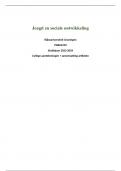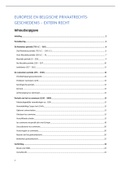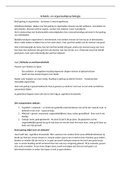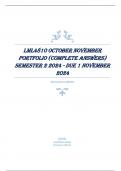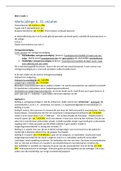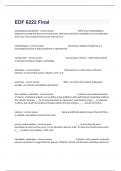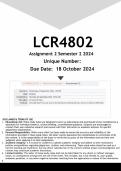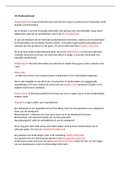Summary
Samenvatting + college aantekeningen - Jeugd en Sociale ontwikkeling (PABA2210)
- Module
- Institution
Complete college aantekeningen + gastcollege van het vak Jeugd en Sociale ontwikkeling (PABA2210) gekozen richting Onderwijswetenschappen van de opleiding Pedagogische Wetenschappen in het studiejaar 2023/2024 . En samenvattingen van de wekelijkse literatuur per artikel.
[Show more]
